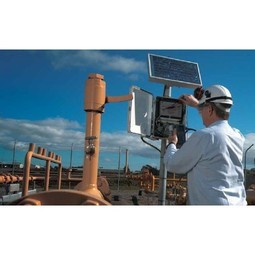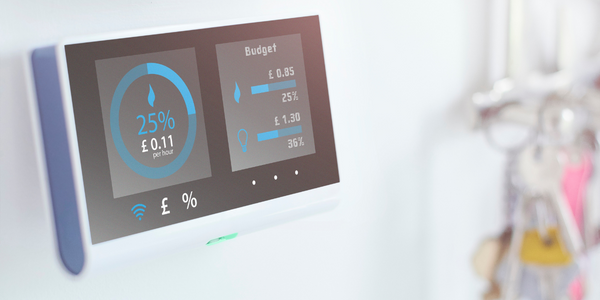Customer Company Size
Large Corporate
Region
- America
Country
- United States
Product
- Ayla Agile IoT Platform
- Ayla Service API
Tech Stack
- Role-Based Access Control
- Cloud Computing
- API Integration
Implementation Scale
- Enterprise-wide Deployment
Impact Metrics
- Customer Satisfaction
- Productivity Improvements
- Revenue Growth
Technology Category
- Platform as a Service (PaaS) - Connectivity Platforms
- Application Infrastructure & Middleware - API Integration & Management
- Infrastructure as a Service (IaaS) - Cloud Computing
Applicable Industries
- Consumer Goods
- Utilities
Applicable Functions
- Field Services
- Maintenance
Use Cases
- Remote Asset Management
- Predictive Maintenance
Services
- System Integration
- Software Design & Engineering Services
About The Customer
A leading original equipment manufacturer (OEM) of residential water softeners, sold under very recognizable brand names, are available throughout the United States from all the major retailers. In addition to the retail channel, the company also has a lucrative dealership channel, with dealers installing units in customers’ homes and performing ongoing maintenance. The OEM had already decided to create cloud-connected models of its water softeners using Ayla’s Agile Internet of Things (IoT) Platform. Dealers would be able to proactively monitor the connected devices and service them remotely, to achieve significant increases in efficiency, time savings, and service revenues.
The Challenge
The OEM was concerned about the privacy of the data generated by the connected water softeners and about how much data a dealer could and should obtain on their customers’ installed units. Because most of a home’s water supply flows through the water softener, the unit could collect data revealing information about the number of people in a household and their water usage patterns, perhaps even their vacation schedules. Concerned about this level of data, the OEM wanted to put in place controls that would allow an end customer to determine how much information their connected water softener shared with dealers on an ongoing basis. At the same time, the OEM did not want to hinder the dealers’ ability to be notified about certain events that would help detect or avoid problems with the installed units. The OEM wanted the dealer to have enough data to remotely troubleshoot or resolve issues.
The Solution
The Ayla cloud team built a sophisticated role-based access framework that is configurable with granular access control rules. The framework allows the OEM to define roles and the privileges associated with each role. Each user in the system can have one or more roles, even down to having different roles for different devices. For example, Jane Doe can be the owner of one device, while having restricted privileges on another device. The OEM defined a “Dealer” role and identified the subset of data from the water softener that this role can have access to during normal operations. This way, dealers are notified only when a unit reaches certain critical thresholds that would be of interest from a service standpoint. When a service event occurs, the dealer can request access to the unit from the customer. Alternately, the customer can grant greater access to the dealer for a specific duration of time. During this time, the dealer gains enhanced access to the unit for easier troubleshooting. Once the problem is resolved, the time-based access can expire or can be explicitly revoked by the customer, and the dealer falls back to a lower level of access.
Operational Impact
Quantitative Benefit

Case Study missing?
Start adding your own!
Register with your work email and create a new case study profile for your business.
Related Case Studies.

Case Study
IoT Solutions for Smart City | Internet of Things Case Study
There were several challenges faced: It is challenging to build an appliance that can withstand a wide range of voltage fluctuations from as low at 90v to as high as 320v. Since the device would be installed in remote locations, its resilience was of paramount importance. The device would have to deal with poor network coverage and have the ability to store and re-transmit data if networks were not available, which is often the case in rural India. The device could store up to 30 days of data.
.png)
Case Study
Improving Vending Machine Profitability with the Internet of Things (IoT)
The vending industry is undergoing a sea change, taking advantage of new technologies to go beyond just delivering snacks to creating a new retail location. Intelligent vending machines can be found in many public locations as well as company facilities, selling different types of goods and services, including even computer accessories, gold bars, tickets, and office supplies. With increasing sophistication, they may also provide time- and location-based data pertaining to sales, inventory, and customer preferences. But at the end of the day, vending machine operators know greater profitability is driven by higher sales and lower operating costs.

Case Study
Automation of the Oguz-Gabala-Baku water pipeline, Azerbaijan
The Oguz-Gabala-Baku water pipeline project dates back to plans from the 1970’s. Baku’s growth was historically driven by the booming oil industry and required the import of drinking water from outside of the city. Before the construction of the pipeline, some 60 percent of the city’s households received water for only a few hours daily. After completion of the project, 75 percent of the two million Baku residents are now served around the clock with potable water, based on World Health Organization (WHO) standards. The 262-kilometer pipeline requires no pumping station, but uses the altitude differences between the Caucasian mountains and the capital to supply 432,000 m³/d to the Ceyranbatan water reservoir. To the people of Baku, the pipeline is “the most important project not only in 2010, but of the last 20 years.”

Case Study
GPRS Mobile Network for Smart Metering
Around the world, the electricity supply industry is turning to ‘smart’ meters to lower costs, reduce emissions and improve the management of customer supplies. Smart meters collect detailed consumption information and using this feedback consumers can better understand their energy usage which in turn enables them to modify their consumption to save money and help to cut carbon emissions. A smart meter can be defined in many ways, but generally includes an element of two-way communication between the household meter and the utility provider to efficiently collect detailed energy usage data. Some implementations include consumer feedback beyond the energy bill to include online web data, SMS text messages or an information display in consumers’ premises. Providing a cost-effective, reliable communications mechanism is one of the most challenging aspects of a smart meter implementation. In New Zealand, the utilities have embraced smart metering and designed cost effective ways for it to be implemented. The New Zealand government has encouraged such a move to smart metering by ensuring the energy legislation is consistent with the delivery of benefits to the consumer while allowing innovation in this area. On the ground, AMS is a leader in the deployment of smart metering and associated services. Several of New Zealand’s energy retailers were looking for smart metering services for their residential and small business customers which will eventually account for over 500,000 meters when the multi-year national deployment program is concluded. To respond to these requirements, AMS needed to put together a solution that included data communications between each meter and the central data collection point and the solution proposed by Vodafone satisfied that requirement.

Case Study
NB-IoT connected smart meters to improve gas metering in Shenzhen
Shenzhen Gas has a large fleet of existing gas meters, which are installed in a variety of hard to reach locations, such as indoors and underground, meaning that existing communications networks have struggled to maintain connectivity with all meters. The meter success rate is low, data transmissions are so far unstable and power consumption is too high. Against this background, Shenzhen Gas, China Telecom, Huawei, and Goldcard have jointly trialed NB-IoT gas meters to try and solve some of the challenges that the industry faces with today’s smart gas meters.








